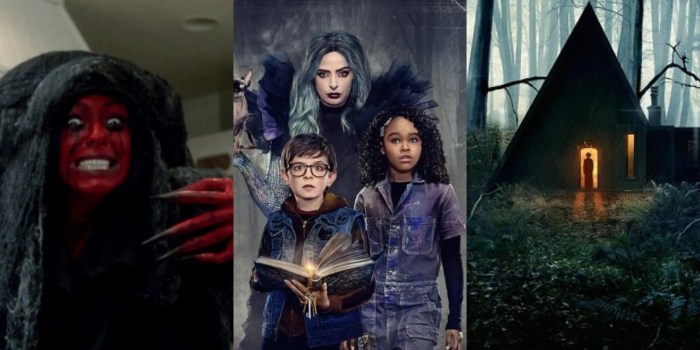The Inherited Movie explores the profound impact of legacy on individuals and societies. From family history to cultural inheritance, the narrative delves into the complex ways these elements shape characters and plotlines. This exploration promises a compelling journey through cinematic representations of inherited values, traditions, and responsibilities.
The film examines how family secrets, cultural clashes, and the tension between tradition and change are woven into the fabric of the narrative. This analysis will cover a range of cinematic examples, from historical dramas to family sagas, to illustrate the breadth and depth of the “inherited movie” genre.
Defining the Inherited Movie
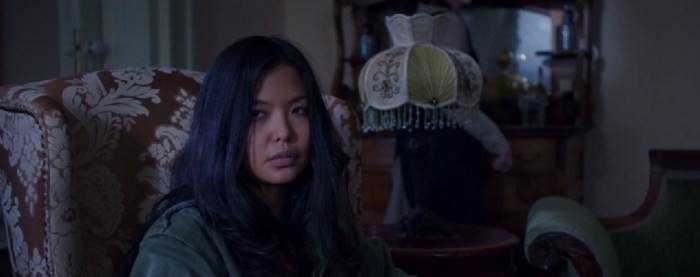
The “inherited movie” genre encompasses a diverse range of cinematic works exploring the multifaceted nature of legacy, family history, and cultural inheritance. These films delve into the complex interplay between past and present, examining how past experiences, traditions, and values shape individuals and communities. Beyond simply depicting historical events, these films often grapple with the emotional and psychological burdens, responsibilities, and opportunities that come with inheriting a particular history or identity.This exploration goes beyond surface-level depictions of family lineage.
It investigates the often-unseen connections between generations, exploring the ways in which past actions, decisions, and traumas reverberate through time, influencing the present. These films often delve into the emotional weight of the past and the struggles to reconcile with or move beyond it.
Defining Characteristics of Inherited Movies
The defining characteristics of “inherited movies” lie in their focus on the transmission of legacy, be it tangible or intangible. These movies are not just about family history; they are about the impact of that history on the characters and their lives.
Common Themes and Motifs
These films often revolve around a core set of themes and motifs, including:
- Legacy and Responsibility: Characters frequently grapple with the weight of expectations and responsibilities associated with their family history or heritage. They must decide whether to embrace or reject the legacy passed down to them.
- Family Secrets and Trauma: Hidden truths, unspoken resentments, and past traumas often emerge as central plot points, highlighting the long-lasting effects of familial conflicts and secrets.
- Cultural Inheritance and Identity: The films may explore how cultural traditions, values, and beliefs shape individual identities and influence relationships across generations.
- Reconciliation and Healing: Many inherited movies portray the characters’ journey towards reconciliation with their past, seeking to understand and heal from the wounds inflicted by family history or cultural trauma.
Examples of Inherited Movies
Numerous films exemplify the “inherited movie” genre, showcasing diverse interpretations of the concept:
- The Godfather (1972): This iconic film explores the powerful influence of family legacy and tradition, highlighting the consequences of inherited power and responsibility. The Corleone family’s history of crime and violence weighs heavily on the characters, shaping their destinies.
- The Last Emperor (1987): This historical drama depicts the life of the last Emperor of China, examining the impact of dynastic history and political upheaval on his personal development and the fate of a nation.
- Atonement (2007): This film portrays the long-lasting repercussions of a single act of betrayal across generations, highlighting how the past can haunt and influence future generations. The actions of a young woman in the past affect her family and friends for years.
- My Left Foot (1989): This biographical drama explores the life of Christy Brown, a man with cerebral palsy, and how his family’s history and cultural context shape his struggles and triumphs.
Comparative Analysis of Inherited Movie Interpretations
| Category | Examples | Themes | Impact |
|---|---|---|---|
| Family Legacy | The Godfather, Atonement | Responsibility, secrets, trauma, reconciliation | Demonstrates the weight of family history on individual lives and relationships |
| Cultural Inheritance | The Last Emperor | Political upheaval, dynastic history, national identity | Illustrates how cultural heritage shapes national destiny and personal experiences |
| Historical Trauma | Atonement | Betrayal, guilt, long-term consequences, generational trauma | Highlights the enduring impact of historical events and personal choices across generations |
| Personal Identity and Struggle | My Left Foot | Disability, resilience, cultural context, personal growth | Explores how personal struggles are shaped by family history and cultural factors |
Exploring the Legacy of Family
Inherited movies often delve into the profound impact of family history on characters’ lives. These narratives explore how past generations’ choices, secrets, and traumas reverberate through time, shaping the present and influencing the future. The genre frequently examines the complex web of relationships and responsibilities that bind families together, revealing the enduring power of inherited traits, both positive and negative.Family history acts as a potent catalyst in inherited movies, providing a rich tapestry of motivations and conflicts.
These narratives often explore themes of guilt, responsibility, and reconciliation, highlighting the intricate connections between individuals across generations. The exploration of family secrets and past traumas reveals the enduring power of these experiences to shape destinies, influencing character decisions and driving plot developments.
Significance of Family History in Shaping Plots, The inherited movie
Family history is central to the plot in inherited movies. It acts as a driving force, providing context for character motivations, conflicts, and relationships. The legacies of past generations—be they positive or negative—frequently shape the present-day struggles of characters. This is often manifested through the transmission of secrets, traumas, or specific behaviors, creating a sense of continuity and echoing past actions in the present.
Examples of Transmitted Secrets and Trauma
Numerous inherited movies feature the passing down of familial secrets and traumas. A common example involves a hidden affair that casts a long shadow on family dynamics, impacting relationships and creating generational conflict. Another common theme involves the concealment of a crime or tragedy, creating a burden of guilt and secrets that must be confronted by later generations.
The emotional toll of such events is often palpable, shaping the characters’ present actions and reactions.
Roles of Family Members in Transmitting Legacies
Different family members play distinct roles in transmitting legacies. Parents often instill values and beliefs that influence their children’s choices. Siblings may inherit similar traits or react differently to the same familial legacy, leading to conflict or understanding. Grandparents may provide crucial insights into the past, offering wisdom and perspectives that illuminate the present. The dynamics between these family members and their interactions are pivotal in showcasing the transmission of legacies.
Table: Manifestations of Family Legacies
| Type of Legacy | Description | Example |
|---|---|---|
| Hidden Affairs/Secrets | Unrevealed or concealed actions of a past generation that impact present-day relationships. | A father’s affair that is hidden from his children, creating tension and mistrust in the family. |
| Financial Inheritance | Money or property passed down, leading to conflict or unexpected opportunities. | A large inheritance from a wealthy relative, causing tension between siblings who must divide the assets. |
| Trauma/Emotional Scars | Negative experiences from the past that affect generations. | A parent’s childhood trauma, leading to an emotionally unstable upbringing for their children. |
| Family Business/Responsibility | A family business or responsibility that is passed down, often with associated burdens or legacies. | A family-owned business with a complicated history, forcing subsequent generations to confront its past. |
| Values and Beliefs | Shared values and beliefs that are passed down from generation to generation. | A family deeply committed to a specific ideology, which influences the life choices of their children. |
The Impact of Cultural Inheritance
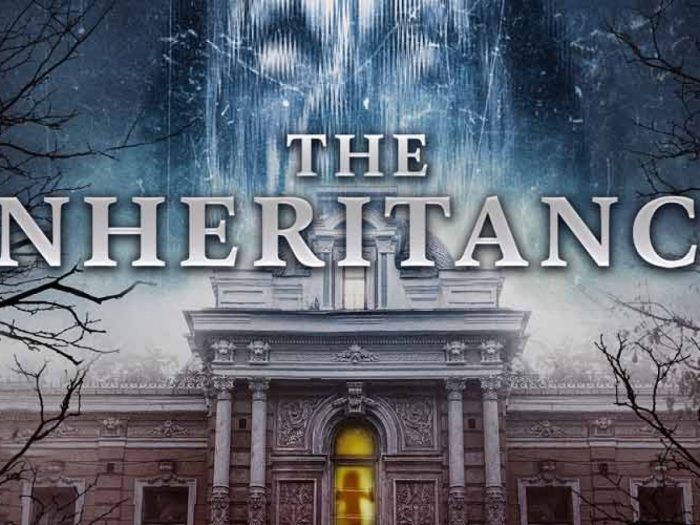
“Inherited” movies often delve into the complex interplay of familial and cultural legacies. These films explore how traditions, values, and beliefs passed down through generations shape characters’ identities, choices, and ultimately, their destinies. They illuminate the powerful influence of cultural inheritance, showcasing both its unifying and divisive aspects. The portrayal of cultural inheritance is frequently intertwined with themes of belonging, identity crisis, and the search for one’s place in the world.Cultural traditions and values are frequently depicted in “inherited” movies through rituals, customs, and historical contexts.
These elements can range from religious practices to family recipes, from artistic expressions to social norms. The films often illustrate how these traditions can be both comforting and restrictive, providing a sense of belonging while simultaneously limiting individual expression. This exploration of tradition versus individual desire forms a core element of the narrative.
Portrayal of Cultural Traditions
Cultural traditions are often presented through visual elements, dialogue, and symbolic representations. For example, a film might showcase traditional clothing, ceremonies, or music to highlight the cultural heritage of a family. These visual cues serve to immerse the audience in the specific cultural context and allow them to understand the characters’ backgrounds more deeply. The language used, both spoken and non-verbal, also contributes to the depiction of cultural values.
The way characters interact with each other, resolve conflicts, and express emotions can be significantly influenced by cultural norms.
Cultural Clashes and Conflicts
Cultural clashes and conflicts are frequently a driving force in “inherited” movies. These conflicts can arise from differing interpretations of tradition, generational gaps, or societal pressures. The clash between old-world values and modern perspectives, or between the customs of two distinct cultures, can create tension and conflict, ultimately shaping the characters’ journeys and the narrative’s trajectory. For instance, a character might struggle to reconcile their inherited cultural values with the expectations of a different society.
Cultural Inheritance and Identity
Cultural inheritance plays a crucial role in shaping characters’ identities and perspectives. The values and beliefs instilled by family members, often unconsciously, shape a character’s worldview and how they perceive the world around them. For instance, a character might adopt a certain set of values or beliefs from their family and community, which influence their choices and actions throughout the movie.
This process of cultural transmission is often portrayed in the movie, with characters struggling to navigate their own identities amidst their cultural heritage.
Depiction of Cultures in “Inherited” Movies
| Culture | Depiction | Influence on Narrative |
|---|---|---|
| Traditional Asian Family | Emphasis on respect for elders, family harmony, and collective responsibility. | The family’s emphasis on maintaining tradition can be a source of conflict with younger generations seeking autonomy. |
| European Aristocratic Families | Emphasis on lineage, tradition, and social standing. | The characters’ adherence to aristocratic norms may clash with modern values, leading to struggles for self-determination. |
| Latin American Families | Emphasis on family ties, strong community bonds, and celebration. | The close-knit family structure can create strong support systems, but also lead to conflicts if traditions are challenged. |
| Modern American Families | Emphasis on individualism, independence, and personal achievement. | The emphasis on individual goals can cause tension with expectations from family and cultural background. |
Visual Storytelling in “Inherited Movies”

Visual storytelling in inherited movies transcends the narrative, weaving a tapestry of emotions and experiences through visual elements. These films often utilize cinematography, color palettes, and symbolic imagery to explore the complexities of family history, cultural inheritance, and the impact of legacies on individuals. The visual language employed not only tells the story but also deeply resonates with viewers, amplifying the emotional impact and fostering a profound connection to the themes presented.Inherited movies frequently employ specific visual techniques to convey the multifaceted nature of family and cultural inheritance.
Cinematography, color palettes, and symbolism act as potent tools, shaping the viewer’s understanding of the characters’ journeys and the weight of their past. These films often depict generational connections, both positive and negative, through the visual representation of family homes, portraits, or heirlooms. The visual language, when thoughtfully crafted, elevates the emotional impact of the narrative, allowing the viewer to immerse themselves in the characters’ experiences and understand the enduring impact of their history.
Cinematography and Setting
The visual style of inherited movies is deeply intertwined with the setting and characters’ lives. Masterful cinematography choices can highlight the weight of the past. Long takes, for example, might emphasize the passage of time and the generational continuity within a family. Establishing shots of grand estates or ancestral homes can symbolize the power and burden of inheritance.
A contrasting approach might utilize shaky camera work to represent the characters’ emotional turmoil or the instability of inherited situations. Furthermore, the use of depth of field can highlight important objects or individuals within the frame, emphasizing their significance in the narrative. These techniques can create a sense of immersion, allowing the viewer to truly inhabit the world of the film.
Color Palettes and Symbolism
Color palettes in inherited movies are often carefully chosen to evoke specific emotions and represent different aspects of the story. Warm colors, such as golden hues or rich browns, might symbolize comfort, stability, and the warmth of family bonds. Conversely, cool colors, like blues or greys, could suggest melancholy, isolation, or the hidden tensions within a family. Specific colors can also be imbued with symbolic meaning, such as a particular shade of red representing passion or a family’s heritage.
The use of symbolism in inherited movies can also include recurring motifs, such as particular objects, locations, or gestures, that are imbued with specific meanings. These visual elements contribute to the deeper understanding of the narrative, enhancing the viewer’s emotional response and enriching the overall experience.
Table: Visual Techniques in Inherited Movies
| Visual Technique | Connection to Theme | Example |
|---|---|---|
| Long takes emphasizing ancestral homes | Weight of the past, generational continuity | A shot of a family portrait gallery, lasting for several minutes, showcasing generations of family members. |
| Warm color palettes | Comfort, family bonds | A scene set in a warmly lit ancestral home, with golden hues on the walls and furniture, representing a sense of familial comfort. |
| Shaky camera work | Emotional turmoil, instability | A scene where a character is struggling with a difficult decision, with the camera shaking to reflect their inner turmoil. |
| Recurring motifs (e.g., specific objects) | Cultural inheritance, symbolic meaning | A recurring antique jewelry piece passed down through generations, representing a family’s history and cultural significance. |
Analyzing Character Development
Inherited movies often delve into the intricate ways in which characters are shaped by their family history, cultural traditions, and societal expectations. These films explore the profound impact of inherited legacies on personality, motivations, and ultimately, the characters’ journeys. The tension between inherited roles and personal aspirations frequently forms the core of the narrative.Character development in inherited movies is not merely about portraying a static set of traits; it’s about showcasing how these traits are forged and transformed through the crucible of familial and cultural pressures.
The characters’ struggles to reconcile their inherited identities with their personal desires create compelling dramatic arcs, driving the plot forward and prompting reflection on the nature of identity itself.
Character’s Embracing or Rejecting Inherited Roles
The characters in inherited movies frequently face a critical juncture: embracing the roles and responsibilities thrust upon them by their lineage or actively rejecting them. This dichotomy creates internal conflicts that significantly shape the plot’s trajectory.
- Characters who embrace their inherited roles often find themselves navigating a complex landscape of expectations and traditions. They might feel a sense of duty or obligation, potentially even finding fulfillment in upholding the legacy of their ancestors. However, this adherence can also lead to internal conflicts and sacrifices as they navigate the demands of their inherited roles against their personal desires.
- Conversely, characters who reject their inherited roles frequently embark on a path of self-discovery and independence. This rejection can be motivated by a desire for personal freedom, a yearning to forge a unique identity, or a recognition that the inherited path does not resonate with their aspirations. Such characters often face opposition from family members or societal structures, leading to significant conflict.
Impact of Reconciling Inherited Identities with Personal Desires
The characters’ attempts to reconcile their inherited identities with their personal desires are often a central theme in these narratives. This internal struggle can lead to significant emotional turmoil and drive the plot forward. The characters’ choices and actions, informed by this struggle, shape the resolution of the story.
- The conflict between inherited identities and personal desires can manifest in various ways. It might involve a character questioning their family’s values, rebelling against traditions, or seeking to carve out a unique path that deviates from the expected trajectory. The emotional weight of these conflicts can be profound, forcing the characters to confront their past and forge a future.
- This internal struggle can be a catalyst for personal growth and transformation. Characters who successfully reconcile their inherited identities with their personal desires often emerge stronger and more self-aware, gaining a deeper understanding of themselves and their place in the world.
Examples of Character’s Grappling with Inherited Roles
To illustrate the diverse ways characters grapple with their inherited roles, the following table offers a glimpse into various approaches:
| Character | Inherited Role | Personal Desire | Impact on Narrative |
|---|---|---|---|
| A young woman from a line of powerful businesswomen | To inherit and maintain the family business | To pursue a creative career in art | Conflict between family expectations and personal ambitions drives the plot, leading to a significant internal struggle and eventual compromise. |
| A son of a renowned artist | To follow in his father’s footsteps as an artist | To pursue a career in engineering | The character’s rejection of the inherited role leads to conflict with his father, showcasing the generational tensions. |
| A member of a royal family | To uphold the traditions and responsibilities of the monarchy | To live a normal life and pursue personal interests | The character’s desire for a more ordinary existence creates friction with the expectations of the monarchy, highlighting the sacrifices required to fulfill inherited obligations. |
Genre and Subgenre Exploration: The Inherited Movie
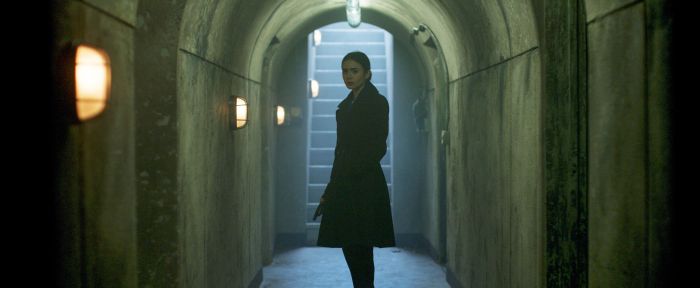
“Inherited movies” encompass a diverse range of cinematic narratives, often exploring themes of family, legacy, and the impact of past generations on the present. These films delve into the complexities of inherited traits, both positive and negative, revealing the enduring power of history and tradition. The genre’s subgenres reflect various storytelling approaches, each with distinct characteristics and thematic emphases.
Identifying Genres and Subgenres
“Inherited movies” draw upon several established genres, incorporating elements of historical dramas, family sagas, coming-of-age stories, and even mysteries. These subgenres, while distinct, frequently overlap, creating layered narratives that explore the multifaceted nature of inheritance. The blending of genres adds depth and complexity to the cinematic experience, allowing for a richer exploration of the characters’ journeys and the impact of their heritage.
Comparison of Subgenres
Historical dramas within the “inherited movie” category focus on the impact of historical events on family lineages. They often trace the evolution of families across decades or centuries, highlighting the influence of social and political changes on their destinies. Family sagas, conversely, concentrate on the intricate relationships within a single family, exploring generational conflicts, secrets, and the lasting effects of past choices.
Coming-of-age stories, while not exclusively focusing on inheritance, frequently incorporate the theme of inherited values and expectations that shape a character’s development. They examine the struggle between tradition and personal aspirations. The exploration of inherited traits and family secrets often intertwines with mystery subgenres, creating suspenseful narratives.
Examples of “Inherited Movies”
- Historical Dramas: “The Godfather” series explores the complex dynamics of a powerful Italian-American family navigating the changing landscape of post-war America. This film, though not exclusively focused on inheritance, exemplifies the power of family legacy in shaping individual destinies.
- Family Sagas: “Downton Abbey” is a prime example, tracing the lives of a wealthy British family through decades of social upheaval and personal dramas, showing how inherited wealth and social standing can influence the course of a family’s life.
- Coming-of-Age Stories: “The Descendants” depicts a man grappling with the weight of his family’s legacy and the need to navigate a complex inheritance situation. This film blends themes of family, legacy, and personal growth.
- Mystery/Thriller: “The Da Vinci Code” explores a family legacy linked to a series of historical mysteries, creating a compelling narrative that intertwines family secrets with historical intrigue.
Categorization of “Inherited Movies”
| Genre | Subgenre | Examples |
|---|---|---|
| Historical Drama | Family Legacy | “The Godfather,” “The Nightingale” |
| Family Saga | Wealth & Social Standing | “Downton Abbey,” “The Crown” |
| Coming-of-Age | Inherited Values | “The Descendants,” “Call Me By Your Name” |
| Mystery/Thriller | Family Secrets | “The Da Vinci Code,” “Knives Out” |
Thematic Depth in “Inherited Movies”
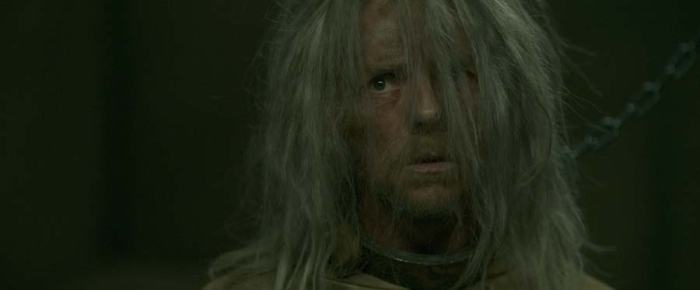
“Inherited movies” often delve into the complex tapestry of family relationships, exploring the profound impact of past generations on the present. These films frequently examine the enduring weight of legacy, both positive and negative, and how individuals grapple with the responsibilities and burdens it entails. The thematic exploration within these narratives often touches upon fundamental human experiences, providing compelling insights into the human condition.The exploration of themes like identity, responsibility, guilt, and forgiveness in “inherited movies” provides a rich and nuanced understanding of the human experience.
These films, often employing intricate storytelling techniques, reveal how past actions reverberate through generations, shaping present-day choices and impacting familial bonds. These thematic threads are not merely present but are woven into the very fabric of the narrative, influencing the characters’ decisions, motivations, and ultimate destinies.
Recurring Themes in “Inherited Movies”
The following themes recur frequently in “inherited movies,” influencing the plot, characters, and overall impact of the film. The intricate interplay of these themes often shapes the narrative, driving the characters’ actions and ultimately, the film’s message.
- Identity and Self-Discovery: “Inherited movies” often portray characters grappling with their sense of self in relation to their family history. They may struggle to reconcile their personal aspirations with the expectations and legacies imposed upon them. For instance, in “The Godfather,” Michael Corleone’s identity is fundamentally shaped by his family’s criminal enterprise, forcing him to confront the ethical implications of his inheritance.
- Responsibility and Legacy: These films frequently examine the weight of responsibility that comes with inheriting a family legacy. Characters are often faced with difficult decisions, balancing their personal desires with the expectations of their family and the impact their choices will have on future generations. “The Inheritance” (2014), for example, highlights the immense pressure of carrying a legacy of wealth and privilege, illustrating how this burden can weigh heavily on the characters.
- Guilt and Redemption: The past often casts a long shadow in “inherited movies,” leading characters to grapple with feelings of guilt for actions taken by previous generations. These films may explore themes of atonement, forgiveness, and the possibility of breaking free from the cycle of negativity. A poignant example is “Atonement” (2007), where a young woman struggles to atone for a past mistake that has far-reaching consequences for her family.
- Forgiveness and Reconciliation: Many “inherited movies” touch upon the importance of forgiveness and reconciliation within families. Characters might need to confront difficult truths, acknowledge past grievances, and work towards healing past wounds. “The Descendants” (2011) exemplifies this theme as the protagonist navigates the emotional complexities of a fractured family following a tragedy.
Thematic Manifestations Across Films
This table illustrates the recurring themes in “inherited movies” and their manifestations in selected films.
| Theme | Film Example 1 | Film Example 2 | Film Example 3 |
|---|---|---|---|
| Identity and Self-Discovery | “The Godfather” | “My Cousin Vinny” | “The Descendants” |
| Responsibility and Legacy | “The Inheritance” | “Atonement” | “The Godfather” |
| Guilt and Redemption | “Atonement” | “The Family Stone” | “The Descendants” |
| Forgiveness and Reconciliation | “The Family Stone” | “The Godfather” | “My Cousin Vinny” |
Closing Summary
In conclusion, “The Inherited Movie” transcends simple storytelling, offering a nuanced examination of how legacies shape characters and narratives. The discussion highlighted the intricate interplay between family, culture, and tradition, revealing the powerful influence these forces have on individuals and societies. The analysis further emphasized the significance of visual storytelling in conveying these complex themes, making the inherited movie a genre rich in depth and emotional resonance.
Questions and Answers
What are some common themes in inherited movies?
Common themes include identity, responsibility, guilt, forgiveness, and the conflict between tradition and change. These themes are explored through the lens of family history, cultural inheritance, and the characters’ struggles to reconcile their inherited roles with personal desires.
How do visual elements contribute to the inherited movie experience?
Visual elements such as cinematography, color palettes, and symbolism are crucial in conveying themes of legacy, family history, and cultural inheritance. These elements amplify the emotional impact on the viewer, adding depth and resonance to the narrative.
Are there specific examples of inherited movies that fall into the “family saga” subgenre?
Examples of family sagas often explore the impact of multiple generations on a family. The
-Paterson* series or
-The Godfather* saga showcase how past traumas and secrets are passed down through generations, impacting characters and plotlines significantly.
